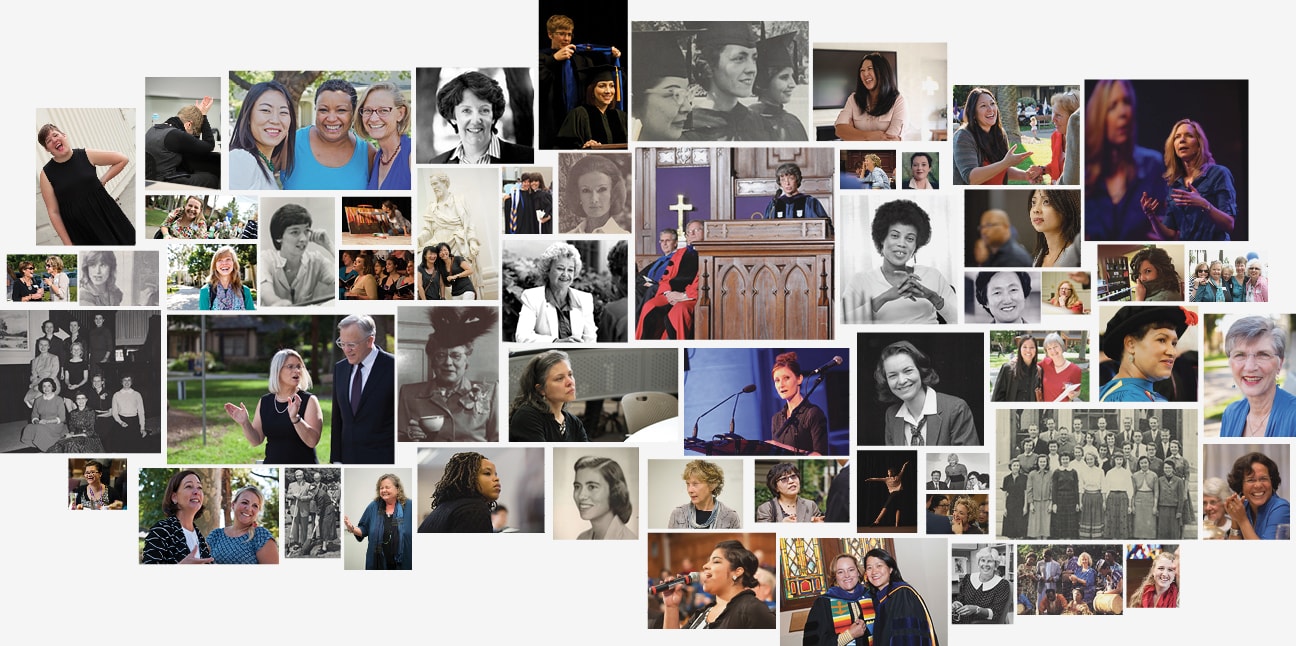
There are several dark oak and glass cases in Fuller Pasadena’s Payton Hall that currently display the historical contributions of women to Fuller Seminary. I am ambivalent about this. On one hand, women are not a minority to be acknowledged in a rotation with campus clubs and charities; on the other hand, if their contributions are not intentionally honored, they will likely be forgotten.
I love the women in those cases. I am lifted by their good faces and their courage—which I borrow on days when the world feels conspicuously off-plumb. The determination shown by “female firsts of Fuller” also reminds me why I don’t like being labeled a “woman writer” or a “woman artist” or a “woman filmmaker.” The image of a lone female surrounded by men in a class, a board meeting, or a faculty gathering reminds me of my own chagrin at being the lone gender diversity representative of some conference or festival. I love giving women credit where it is due, yet I am squeamish about seeing them trapped behind glass—cabinet doors or ceilings—as if they were “other.”
In the 1970s at Fuller, women students had grown enough in number that they were no longer an inconvenient anomaly, and they, too, wanted out from behind the glass. Six of them held a sit-in at the provost’s office, demanding a thing I wish we hadn’t needed: an office of women’s concerns. Their brave determination forced a busy administration to pay attention, but it brought about change because Fuller intends equality. This intention is very important—whether we’ve arrived or are only headed the right way on the path. Whether we speak or hold our tongues, stand for justice or sit without budging, we must willfully, passionately, and intentionally keep moving toward change. This goes, of course, for every category in which we are troublingly dis-integrated—not just gender. The greatest threat to justice is that we grow so weary of the rigors of working toward it that we flame out.
Searching deeper in the faces of those women friends and forerunners, it’s easy to imagine Robin Williams as Professor Keating in the film Dead Poets Society urging his freshman class to “seize the day” as they stand before their own oak and glass display cases. As they gaze into student faces from long past, their beautiful and clueless expressions transform from suspicion to wonder while he insists: “Carpe! Carpe! Carpe diem!”
I am similarly moved to wonder there in the Payton Hall lobby, grateful to the curators of an exhibit that is so conflicting and inspiring to me. The whisper I hear combines Professor Keating and the Apostle Paul: “Carpe diem! ‘Jews and gentiles, slaves and free, male and female’—seize the day! Make your lives extraordinary.”

